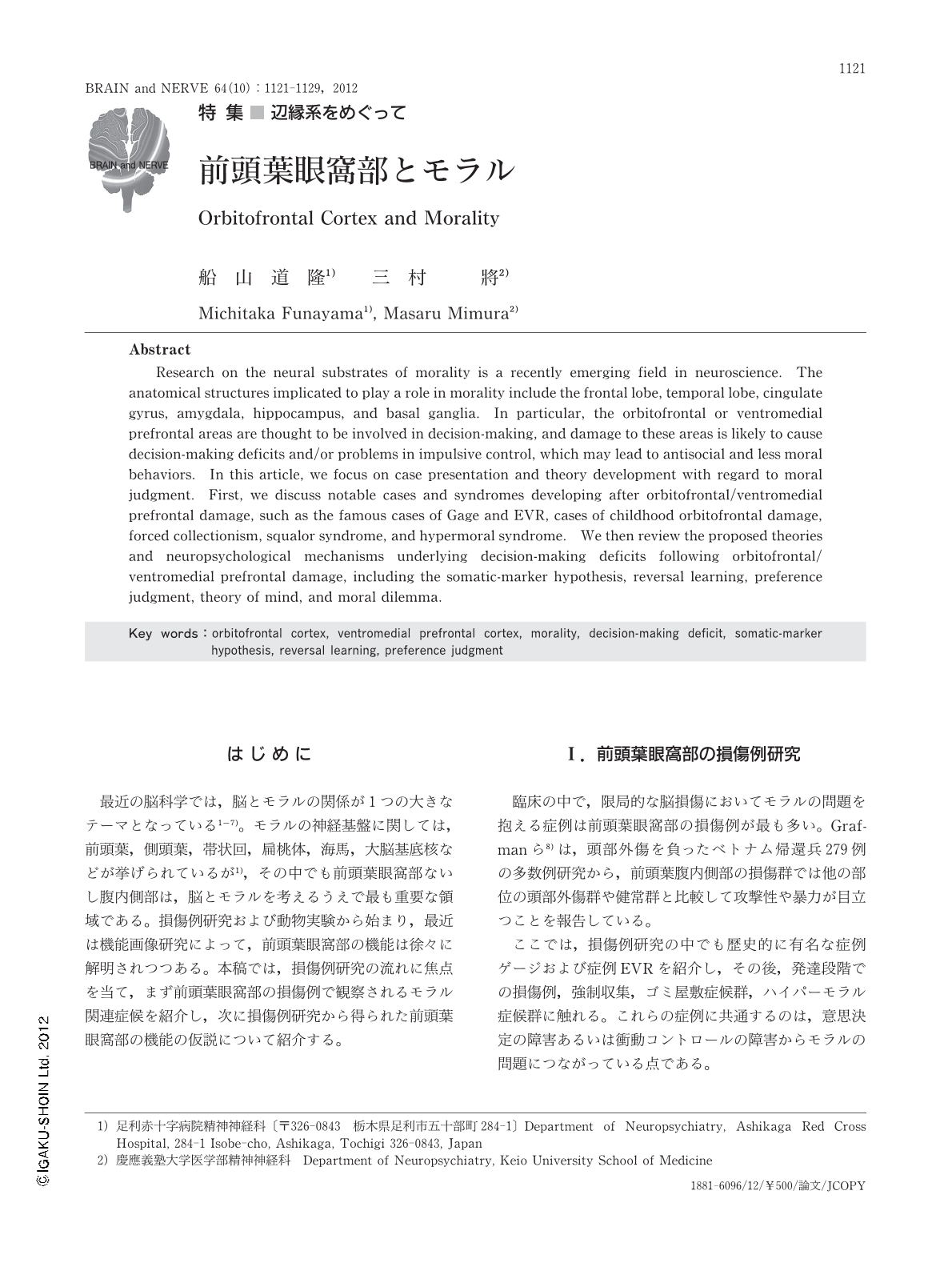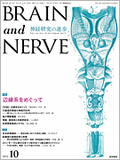Japanese
English
- 有料閲覧
- Abstract 文献概要
- 1ページ目 Look Inside
- 参考文献 Reference
はじめに
最近の脳科学では,脳とモラルの関係が1つの大きなテーマとなっている1-7)。モラルの神経基盤に関しては,前頭葉,側頭葉,帯状回,扁桃体,海馬,大脳基底核などが挙げられているが1),その中でも前頭葉眼窩部ないし腹内側部は,脳とモラルを考えるうえで最も重要な領域である。損傷例研究および動物実験から始まり,最近は機能画像研究によって,前頭葉眼窩部の機能は徐々に解明されつつある。本稿では,損傷例研究の流れに焦点を当て,まず前頭葉眼窩部の損傷例で観察されるモラル関連症候を紹介し,次に損傷例研究から得られた前頭葉眼窩部の機能の仮説について紹介する。
Abstract
Research on the neural substrates of morality is a recently emerging field in neuroscience. The anatomical structures implicated to play a role in morality include the frontal lobe, temporal lobe, cingulate gyrus, amygdala, hippocampus, and basal ganglia. In particular, the orbitofrontal or ventromedial prefrontal areas are thought to be involved in decision-making, and damage to these areas is likely to cause decision-making deficits and/or problems in impulsive control, which may lead to antisocial and less moral behaviors. In this article, we focus on case presentation and theory development with regard to moral judgment. First, we discuss notable cases and syndromes developing after orbitofrontal/ventromedial prefrontal damage, such as the famous cases of Gage and EVR, cases of childhood orbitofrontal damage, forced collectionism, squalor syndrome, and hypermoral syndrome. We then review the proposed theories and neuropsychological mechanisms underlying decision-making deficits following orbitofrontal/ventromedial prefrontal damage, including the somatic-marker hypothesis, reversal learning, preference judgment, theory of mind, and moral dilemma.

Copyright © 2012, Igaku-Shoin Ltd. All rights reserved.


